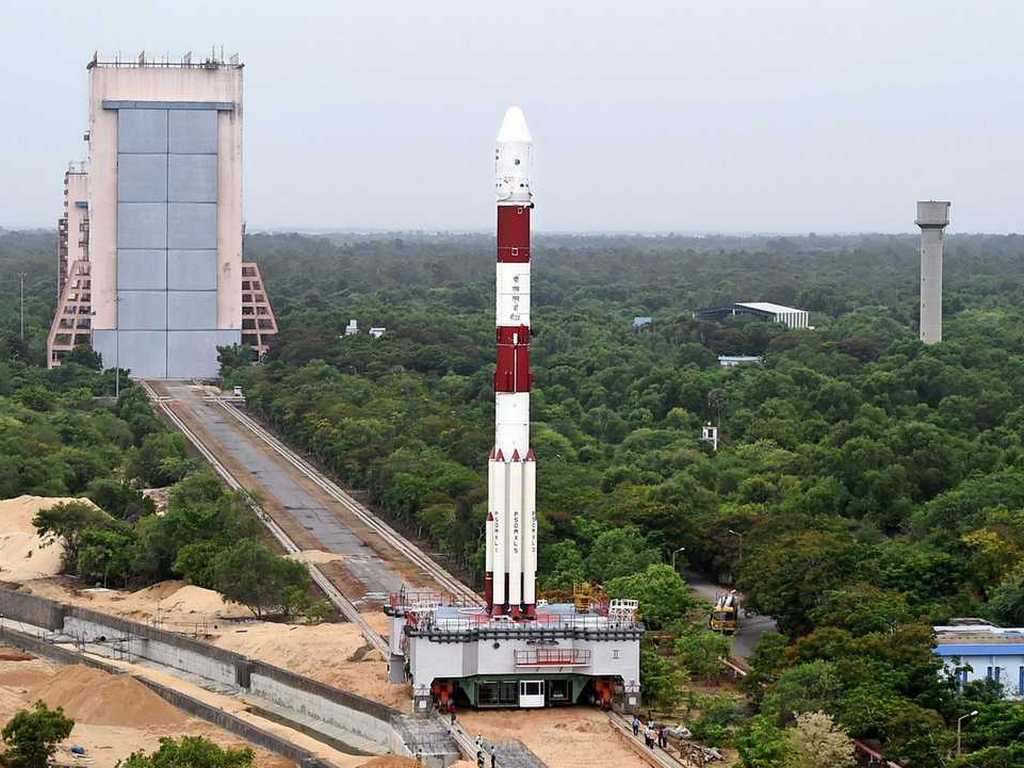ISRO’s PSLV-C56 Mission: Unique Experiment Set to Take Place – All Details Revealed

ISRO’s PSLV-C56 Mission: Unique Experiment Set to Take Place – All Details Revealed
The Indian Space Research Organisation (ISRO) has demonstrated its expertise in satellite deployment by successfully launching seven Singaporean satellites during the recent PSLV-C56 rocket mission. Building on this success, ISRO scientists are now undertaking a novel experiment using the fourth stage of the rocket to further advance their capabilities.
The PSLV-C55 TeLEOS-2 mission, launched in April, was a significant milestone for ISRO, and the upcoming mission seeks to push the boundaries even further. The agency is continuously exploring new possibilities and techniques to enhance its space exploration endeavours.
ISRO’s pioneering spirit has earned India a reputation as a reliable player in the global space industry. The organization’s dedication to innovation and its commitment to pushing the limits of technology have allowed it to achieve remarkable milestones in space exploration.
As the space industry continues to evolve, ISRO’s efforts are expected to play a crucial role in advancing space science and technology not only for India but also for the international community.

What is ISRO’s unique experiment?
The decision to position the fourth stage of the PSLV rocket into a lower orbit during the upcoming mission is a strategic move by ISRO to fulfil specific objectives. By reducing the orbital altitude of the spent PS4 stage to approximately 300 km, scientists aim to achieve certain goals in space experimentation and technology development.
This unique experiment will allow ISRO to gather valuable data and insights on the behaviour and performance of the PSLV rocket’s fourth stage in a lower orbit environment. Understanding the behaviour of rocket stages at different altitudes is essential for optimizing future missions and improving overall launch efficiency.
Additionally, the lower orbit positioning of the spent stage aligns with ISRO’s focus on space debris management and sustainable space practices. By intentionally de-orbiting the stage to a lower altitude, ISRO ensures that the space debris created from the spent stage’s reentry will naturally decay and burn up in the Earth’s atmosphere over a relatively short period. This approach minimizes the potential risks associated with space debris, contributing to the long-term sustainability of space activities.

The success of this experiment will be an important milestone for ISRO and may open up new possibilities for future missions and space technology advancements. As ISRO continues to innovate and push the boundaries of space exploration, this upcoming mission represents another chapter in India’s remarkable journey in space science and technology.
The method of achieving the lower orbit for the fourth stage of the PSLV rocket involves utilizing the remaining propellants to control its trajectory and manoeuvre it to a Low Earth circular orbit measuring 300×300 km. By expending the remaining propellants in this controlled manner, the spent PS4 stage will effectively be de-orbited to the lower altitude.
As a result of this strategic approach, the spent PS4 stage will have a shorter orbital lifespan compared to its typical trajectory after a standard launch. By positioning the spent stage into a lower orbit, ISRO can ensure that it reenters the Earth’s atmosphere sooner, leading to its natural decay and disintegration. This approach aligns with the goal of space debris management and reduces the risk of adding to the growing problem of space debris around Earth.
The experiment marks a significant step in ISRO’s space technology development and demonstrates the organization’s commitment to sustainable space practices. By actively managing the reentry of spent rocket stages, ISRO is contributing to a safer and more sustainable space environment. Additionally, the insights gained from this experiment will be valuable for future missions and advancements in space launch technology.

The upcoming experiment with the fourth stage of the PSLV rocket is building upon the success of the previous PSLV-C55 mission in April. During the PSLV-C55 mission, ISRO’s scientists demonstrated the capability of using the fourth stage of the rocket, also known as PS4, as an orbital platform for conducting scientific experiments.
The PSLV Orbital Experimental Module (POEM) was housed within the PS4 stage and was utilized to conduct various scientific experiments during its time in orbit. The successful use of the PS4 stage as an experimental platform in the previous mission has paved the way for the current endeavour to de-orbit the spent stage into a lower orbit.
These experiments and advancements highlight ISRO’s continuous efforts to explore innovative approaches and push the boundaries of space technology. By repurposing the PS4 stage for scientific experiments and conducting strategic manoeuvres to achieve a lower orbit, ISRO is showcasing its commitment to research and development in space exploration. These achievements also contribute to India’s space capabilities and further solidify ISRO’s reputation as a leading space agency in the world.
ISRO’s consistent efforts and successful missions demonstrate their expertise in space exploration and technology. Over the years, ISRO has achieved numerous milestones and made significant contributions to space science. Their missions have included satellite launches, lunar missions, interplanetary explorations, and advancements in satellite technology, among others.

The organization’s commitment to innovation, cost-effectiveness, and reliability has earned it recognition and respect on the global stage. ISRO’s accomplishments have not only brought pride to the nation but have also expanded our understanding of the universe and its mysteries.
As embarks on novel experiments like using the fourth stage of the PSLV rocket for scientific research and strategic manoeuvres to achieve lower orbits, it showcases their willingness to explore new frontiers and push the boundaries of what is possible in space exploration.
With each successful mission, it continues to inspire and captivate the world with its achievements, further solidifying India’s position in the realm of space science and technology.




